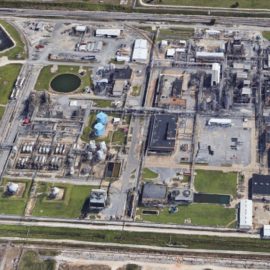
The EPA seems to be walking the talk as they set up an environmental justice and civil rights office.
The Environmental Protection Agency is creating a national environmental justice and civil rights office, a move that could result in further action in the part of Louisiana that advocates have labeled “Cancer Alley.” Saturday’s EPA announcement says 200 staff will be dedicated to “solving environmental challenges in communities that have been underserved for far too long.” The office will engage with communities, manage grants and technical assistance, and work to “incorporate environmental justice into the agency’s programs, policies and processes,” an EPA statement said.
nola.com
The announcement was made in a symbolic site in Warren County North Carolina.
The announcement was made in Warren County, North Carolina, considered the birthplace of the environmental justice movement because of protests there around four decades ago over toxic waste. The move was cheered by Louisiana’s environmental activists, who have long held that the petrochemical plants that have been allowed to proliferate along the Mississippi River between Baton Rouge and New Orleans have harmed the communities that surround them. The Louisiana Chemical Association, which includes 64 member companies, however accused the EPA of insufficiently engaging with it while citing the plants’ economic benefits and efforts to reduce emissions. Sharon Lavigne, of RISE St. James, who attended the EPA announcement, said she hoped the move would result in immediate, concrete action to protect residents’ health, and accused the state Department of Environmental Quality of being “in the pockets of industry.” Lavigne, a Goldman Environmental Prize recipient last year, also said she felt EPA Administrator Michael Regan’s visit to Louisiana in November 2021 “touched his heart.” Regan visited the state as part of a tour highlighting environmental justice issues. “I feel like it will. I think he’s going to work throughout the United States for us to get clean air and clean water,” said Lavigne, who is from the Chatman community in St. James. “I believe that it’s going to go beyond just talk.”
Other groups chimed in with praise.
Anne Rolfes, of Louisiana Bucket Brigade, called the announcement “great news” but urged specific actions, including the closing of the Denka Performance Elastomers plant, the only one in the nation that emits chloroprene, which is used in the production of neoprene. The chemical is classified as likely capable of causing cancer. “This is welcome, and I’d say there are some very concrete steps they could take in Louisiana,” Rolfes said.
Denka is part of the problem this office will be trying to solve.
Denka, which bought the facility in 2015, has said it has invested tens of millions of dollars to reduce chloroprene emissions by over 85% compared with emissions in 2014. Denka is among a list of plants activists point to as subjecting Black communities to an unfair pollution burden and the health risks associated with it. The company had not immediately responded to a request for comment Monday.
The State mouthed platitudes while industry groups defended themselves.
DEQ Secretary Chuck Carr Brown said in a statement that the state agency “has always had a good working relationship with our federal partners, and we expect to benefit from our interactions with this new office.” “We look forward to taking advantage of the guidance and knowledge that EPA’s Office of Environmental Justice and External Civil Rights brings to the table,” he added. A peer-reviewed study published in January drew a link between cancer rates and carcinogenic air pollution in impoverished communities in Louisiana. The study included a range of factors and said it controlled for parish-level smoking and obesity rates. The Louisiana Chemical Association has disputed the findings, arguing that factors such as nutrition and a lack of preventative care in poor communities are to blame. Plant operators also point to the jobs and investment they bring — along with the demand for goods they help produce — while saying they have worked to bring down emissions. “Over the last 30 years, Louisiana’s chemical industry has reduced air emissions by 75 percent,” association head Greg Bowser said in a statement. “If the EPA is truly concerned about the well-being of communities in Louisiana, it should work with us; instead, we’ve seen the opposite.” The association says Regan declined to meet with its representatives during his November tour.
THis is just one of the number of events that have hit Louisiana.
The EPA’s latest action joins others already taken affecting Louisiana. They include an announcement in April that it is investigating the state DEQ and Department of Health over whether they discriminated against Black residents in permitting decisions related to Denka and two other planned facilities. Louisiana activists have also seen two other recent victories. They include a judge’s decision to revoke air permits for a massive planned Formosa Plastics complex and the defeat of the South Louisiana Methanol Project in St. James Parish.
Welcome to the world where oil is not king.



